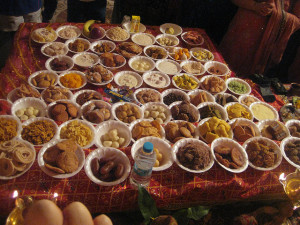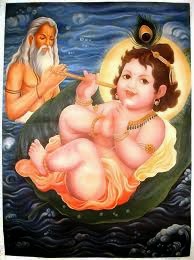Introduction to Mutta Balarama
Balarama Dasa, affectionately known as “Mutta Balarama” or “Passionate Balarama,” was a fervent Oriya Vaishnava preacher. He is the author of the “Laxmi Purana” in Oriya, a text aimed at eradicating the evils of the caste system from society. His passionate devotion to Lord Jagannath was well-known, as was his unique and teasing relationship with Mother Laxmi.
The Story of Sriya Chandaluni
Balarama Dasa used to tease Mother Laxmi by calling her “Boki” (temperamental) and “Teri” (squint-eyed). In Puri and most South Indian temples, it is customary to visit the temple of Laxmi after visiting Vishnu and spend a few moments seeking her favor. Balarama, however, would worship Jagannath on the ratna vedi and then leave without visiting Laxmi’s temple, much to her annoyance.
Laxmi’s Curse
One day, Mother Laxmi confronted Balarama, demanding an explanation for his behavior. In his typical teasing manner, Balarama replied, “Oh my temperamental squint-eyed mother, I see you standing next to my Prabhu on the ratna vedi. This is quite adequate, and I do not see any reason why I must visit you in your temple.” Infuriated, Laxmi reminded him that the temple is called “Srimandir” and the area is “Sri Kshetra” in her honor. She then cursed Balarama to spend his last days away from Sri Kshetra and Srimandir.
Exile and Final Days
After a conflict with King Prataprudra Deva, Balarama was banished from Puri and sent to a place near Brahmagiri, 20 miles from Puri. As the end of his life approached, Balarama decided to walk back to Puri to visit Jagannath on the ratna vedi one last time. However, Laxmi’s curse took effect. Near the periphery of Puri, Balarama felt dizzy and rested under a banyan tree.
The Lord’s Visit
Realizing that Balarama could not make the journey, Lord Jagannath, accompanied by Mother Laxmi, came to visit him. Upon seeing them, Balarama offered his respects. Laxmi reminded him of her curse, stating that he would die without visiting Srimandir. Balarama, smiling, responded, “Oh my temperamental squint-eyed mother, don’t you know wherever you stand next to my Prabhu, that place becomes Srimandir and the surroundings become Sri Kshetra.” After saying this, he fell and passed away.
Conclusion and Reflections
Bhakta Kabi Madhusudan Rao captured this essence beautifully in his bhajan: “…ei mane bije toro nije Narayana, tu kiyAn khojuchu buli chaudige mana…” (In my understanding of minimalist approach, the temple is in your heart and the worship is in your feelings.)
Lessons to Be Learned
- The Significance of Devotion: True devotion transcends physical places and rituals. It is the sincerity of the heart that matters.
- The Role of Laxmi: Recognizing the importance of honoring all aspects of the divine, including the consort of the Lord, is essential in complete worship.
- Acceptance of Divine Will: Even in exile and adversity, Balarama Dasa maintained his faith and devotion, exemplifying acceptance of divine will.
- The Power of Bhakti: Devotion and love for the Lord can transform any place into a holy shrine, emphasizing the omnipresence of the divine.
Prayer
Prayer of Devotion to Lord Jagannath and Mother Laxmi “O Lord Jagannath, the Supreme Lord of the universe, and O Mother Laxmi, the goddess of fortune, I offer my heartfelt devotion to You both. May my devotion be sincere and untainted by material desires. Let my heart become the temple where You both reside. May my life be filled with the divine grace of Your presence, and may I always remember that true worship lies in the purity of my heart and the sincerity of my devotion. Please guide me to serve You with humility and love, and may I always feel Your presence wherever I am. Jai Jagannath! Jai Maa Laxmi!”
This story and the teachings embedded within it highlight the profound relationship between the devotee and the divine, illustrating that true devotion knows no bounds and that the divine presence can be felt anywhere the heart is pure and filled with love.



